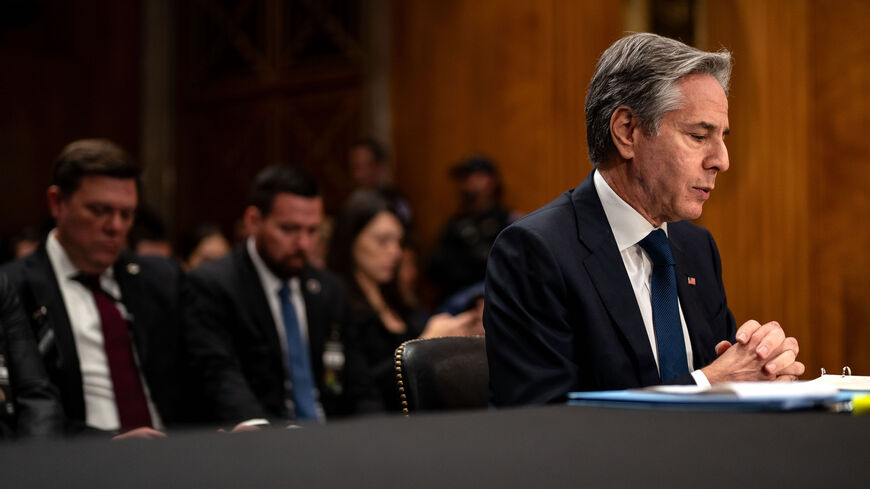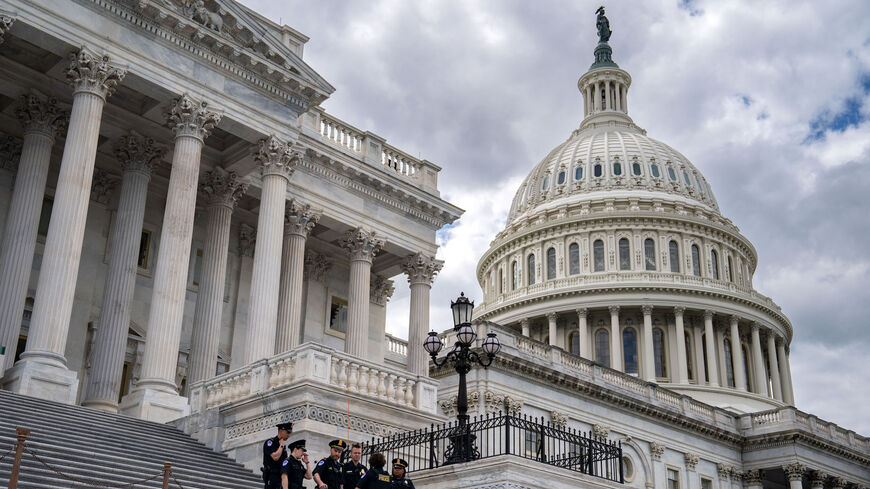House passes ICC sanctions bill, setting up showdown for Biden and Democrats
After passing the House with bipartisan support, the bill responding to a requested arrest warrant for Netanyahu now heads to the Senate.

US lawmakers in the House of Representatives passed legislation Tuesday that would sanction the International Criminal Court for seeking arrest warrants for senior Israeli leaders, setting up a potential showdown between the US president and congressional Democrats.
The White House has previously said it “strongly opposes” new sanctions on the ICC. The stance pits President Joe Biden against Democrats in Congress who said they want a bipartisan response to ICC prosecutor Karim Khan's recent announcement that he is pursuing arrest warrants for Israeli Prime Minister Benjamin Netanyahu and Defense Minister Yoav Gallant for alleged war crimes and crimes against humanity linked to the war in Gaza.
In the latest break between the president and moderates in his party, 42 House Democrats crossed party lines to help pass the Republican bill. The legislation now heads to the Senate, where the chamber’s top Democrat on foreign policy has said he was “disappointed” that House Republicans pressed ahead with the bill.
“I thought they were going to try and work on a bipartisan bill that would try to [bring Republicans and Democrats] together,” Senate Foreign Relations chairman Ben Cardin (D-Md.) told Jewish Insider on Monday. "They [Republicans] will do their thing, and we’ll try to see what we can do on our side,” he added.
The legislation that passed Tuesday, 247-155, would sanction individuals who have “directly engaged in or otherwise aided” the ICC in prosecuting Americans or citizens of US allies that do not recognize the ICC, including Israel. Neither the United States nor Israel is party to the Rome Statute, the international treaty that established the ICC in 2001.
If a three-judge panel signs off on the warrants, Netanyahu and Gallant could face arrest in the more than 120 countries that are party to the Rome Statute.
Republicans are warning that failure to revive Trump-era sanctions on the international court ultimately puts US officials and military personnel at risk.
“This sets a dangerous precedent, where now it's Israeli officials, tomorrow it could be American,” House Foreign Affairs Committee chair Michael McCaul (R-Texas) said on the floor.
McCaul’s Democratic counterpart Gregory Meeks (D-N.Y.) agreed the ICC has no jurisdiction over Israel but said sanctions would have a “chilling effect” on the court’s ability to “hold accountable bad actors.” Meeks voted against the bill. Last year, lawmakers from both parties supported the ICC issuing an arrest warrant for Russian President Vladimir Putin for war crimes committed in Ukraine.
Senate showdown
Pro-Israel Democrats, including Senate Majority Leader Chuck Schumer (D-N.Y.), were quick to condemn the request for arrest warrants for Netanyahu and Gallant. Support from just a handful in the Senate could clear the sanctions bill for Biden’s desk.
“We will continue to work in a bipartisan manner to strenuously object to the ICC’s actions against our ally, Israel, and take appropriate steps to help Israel and protect American personnel from future ICC action,” Cardin and Sens. Richard Blumenthal (D-Conn.), Jeanne Shaheen (D-N.H.) and John Fetterman (D-Pa.) said in the statement along with Senate Republicans in May.
Schumer has so far not put a bill on the floor challenging the Biden administration's position on any issue related to Israel’s war with Hamas. He now faces a decision on whether to give senators the opportunity to cast a vote on sanctioning the ICC.
Schumer, the highest-ranking US Jewish elected official, has called the ICC seeking arrest warrants for Israeli officials in tandem with warrants for three Hamas leaders “reprehensible.”
“The ICC’s decision seeking warrants against Israeli leaders is not only shameful, but also fails to follow protocol and process in a country where it has zero jurisdiction. I fiercely oppose the ICC’s decision. And I will work with President Biden and members on all sides to keep support for Israel strong and unwavering,” Schumer said in May.
A bipartisan Senate group is reportedly working on alternatives to sanctions, such as decreasing US support for the ICC. But so far no details have been released. Cardin told Politico Tuesday that the "partisan" House bill could make a bipartisan compromise more difficult. “We're all in agreement the ICC prosecutor was wrong," the chairman added.
If the House bill passes the Senate, its fate upon reaching the president's desk remains undetermined.
The White House stopped short of saying that Biden would veto the bill, adding the administration is “deeply concerned” by the ICC prosecutor’s “heedless rush” to apply for arrest warrants. The White House lifted sanctions on the ICC in 2021, implemented by the Trump administration after the court announced investigations into US conduct in Afghanistan, calling them “inappropriate and ineffective."






